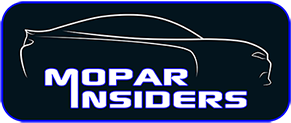President Emmanuel Macron’s vision for France Inc. to join forces in building batteries for cars of the future isn’t going exactly as planned.
The more than 120-year rivalry between Peugeot and Renault SA has proved too fierce to overcome, even for a 5 billion-euro ($6 billion) project backed by their powerful shareholder, the French government. Instead, PSA Group, now part of Stellantis NV, and oil giant Total SA are pushing ahead without Renault, which may pursue its own plans with South Korea’s LG Chem Ltd.
France and Germany, where the electric revolution is making obsolete thousands of jobs in areas like engine and transmission-making, have led the political push over the past few years for developing a local battery cell industry in a bid to take back control of a car part that can make up 40% of an EV’s value. Yet other carmakers are further along in sorting out battery-supply strategies than the French.
Macron sought to form a united front because batteries will be one of the most powerful forces to reshape Europe’s auto industry in decades. Getting significant regional production up and running to counter Asian dominance and meet the needs of a booming electric-car market will take years, and it’s been made more difficult by the pain inflicted by the pandemic.
A little more than a year after Macron journeyed to a small town in southwestern France to promote ACC, an official in his office said discussions are ongoing about participation in the project including with Renault. Macron has looked to back innovation in industries like battery cells, automation and aeronautics as a way to safeguard jobs in France and keep factories going in regions outside the capital which have suffered from decline in the past decades.
In France, the inability of Renault and Stellantis to work together on what is effectively the country’s only viable project to date has become increasingly clear. The companies have long battled to woo customers of affordable cars and even Macron’s strong-arming them to work together in what was dubbed the ‘Airbus of Batteries’ has failed so far.
“Renault doesn’t want to be in a supply agreement with PSA due to their historic rivalry,” Sempe said. Their talks “may have ended in a clash, but for diplomatic reasons no one is saying so.”
“Renault could bring us something from a technological point of view,” said Yann Vincent, who heads the joint venture with Stellantis and Total called Automotive Cells Company. “But the business plan was built without them so we can move ahead without them.” At Renault, executives seeking to turn the loss-making automaker around have sent ambiguous signals. Chairman Jean-Dominique Senard has said the carmaker wants battery production close to its factories in northern France and could join ACC if it’s “treated at parity.”
Batteries can make up roughly 40% of the value of an EV depending on the model. They weigh hundreds of kilograms, making long-distance supply chains unworkable both environmentally and as vehicle output grows.
The European Commission last month unveiled a second package in as many years bringing the total sum of support to 6.1 billion euros. Automakers BMW, Stellantis’s Fiat Chrysler Automobiles and Tesla were listed as direct recipients along with companies ranging from chemical makers to power producers. The bloc expects the funds to generate another 14 billion euros in private investment.
French Carmaker Rivalry Defies Macron’s EV Battery Vision - BloombergStellantis’s ACC will get 1.3 billion euros from France and Germany and has pledged to open plants in both countries. The project will have an initial production capacity of 8 gigawatt-hours and aims for 48 gigawatt-hours by 2030, enough to supply 1 million electric vehicles annually. By then, the European market will be about 400 gigawatt-hours, according to a company forecast.
ACC is still refining the type of battery technology it plans to adopt and has started discussions with a range of carmakers on selling future output from its plants, according to Vincent.
“There is more than enough room for all the battery projects out there now,” he said.
No equity for Renault in ACB (Automotive Cells Company.'' Stellantis has a bunch of EV needs of its own...... Macron gets boxed in by EXOR again as Renault would using LG's technology just like GM.
